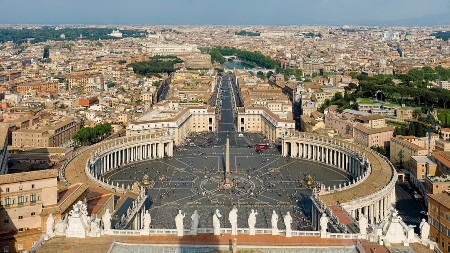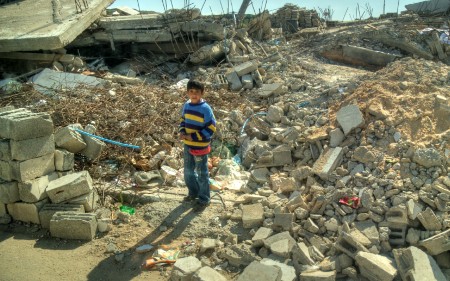 Dear readers, Catholic Online was de-platformed by Shopify for our pro-life beliefs. They shut down our Catholic Online, Catholic Online School, Prayer Candles, and Catholic Online Learning Resources—essential faith tools serving over 1.4 million students and millions of families worldwide. Our founders, now in their 70's, just gave their entire life savings to protect this mission. But fewer than 2% of readers donate. If everyone gave just $5, the cost of a coffee, we could rebuild stronger and keep Catholic education free for all. Stand with us in faith. Thank you. Help Now >
Dear readers, Catholic Online was de-platformed by Shopify for our pro-life beliefs. They shut down our Catholic Online, Catholic Online School, Prayer Candles, and Catholic Online Learning Resources—essential faith tools serving over 1.4 million students and millions of families worldwide. Our founders, now in their 70's, just gave their entire life savings to protect this mission. But fewer than 2% of readers donate. If everyone gave just $5, the cost of a coffee, we could rebuild stronger and keep Catholic education free for all. Stand with us in faith. Thank you. Help Now >
A 'Good Bank' to Foster Development
FREE Catholic Classes
Finance is only a tool. It is a tool that has recently been used poorly...But it can also be used to do good.
Highlights
Chiesa (chiesa.espresso.repubblica.it)
3/3/2009 (1 decade ago)
Published in Europe
ROMA (Chiesa) - Sandro magister presented the following article on the concept of a "good bank", From L'Observator Romano in his Chiesa:
A "good bank" to foster development. Finance can work miracles
Finance is only a tool. It is a tool that has recently been used poorly, and as a result has been too harshly condemned. But it can also be used to do good. In a certain sense, finance can work miracles. The opportunity is there, and it is the solution to the crisis underway. The means is there, and it is the creation of a "good bank" that would finance a global project for solving the crisis, and would represent the hedging of the "bad bank" proposed in recent months.
From 1939-1940, loans were made to finance the second world war, and, following this, more bonds were issued to finance the Marshall Plan. The tragedy of the war resolved - if one can speak of it this way - the problems of unemployment. The Marshall Plan resolved the problems of poverty, guaranteeing the reconstruction of postwar Europe. Both of the initiatives resolved America's economic problems.
The war to the finance today to overcome the crisis is, instead, the war on global poverty. The reconstruction to be guaranteed today is that of poor countries.
This might seem like contradiction, but it is only by involving the entire world in a greater effort that the effects of the crisis can be reabsorbed, as soon and as well as possible. After the inaugural address of the new president of the United States, it can be hoped that an "Obama Plan" might be launched to overcome the crisis, combating poverty and thus permitting not only his nation but all of humanity to emerge from its plight.
In 1939, the problems of production support and unemployment were solved by arming soldiers and building cannons. In 1946, it meant rebuilding a partly destroyed Europe. Today, production capacity can be supported - much more globally, and at much lower costs - with a plan of intervention on behalf of poor countries, to satisfy their potential demand and initiate adequate economic activities through investment in infrastructure projects.
Poor countries are therefore the objects of today's reconstruction. The project of a war against poverty to confront the crisis would immediately give rise to further economic initiatives and related investment. Entrepreneurial initiative would be fostered again, and the stock markets would reward the companies involved, guaranteeing support for their production capacity.
How significant is this project, and how could it be financed? It could be just as significant as the bubble that would weigh on the "bad bank" that is spoken of so often, and like this latter, it could be financed with a fifty-year loan to be undersigned by all the rich countries in the world. It is likely that even the projection of the resources necessary is frightening. But what should be even more frightening is the lack of real alternatives. Instead, one should think in terms of costs and benefits, in terms of opportunity, as was done when it was decided to finance the second world war and the following reconstruction plan.
Today, greater resources are required. But today, the world - which has entered the economic cycle of production and prosperity - has capacities much greater than it did seventy years ago. In order to absorb the giant bubble that will coalesce in the "bad bank," there is therefore the need for a project to produce true sustainable wealth: the hedging of the "bad bank" must be done with the "good bank." In order to absorb past losses, an overall world economy of growth and prosperity is necessary.
Just as happened for Europe, revived by the Marshall Plan and returned to economic growth and even an economic boom in ten years, so it could be - although with different phases and processes - for the economies of the poorest countries, which in twenty or thirty years would be able to begin paying back the debt by producing their own wealth and prosperity. This is what has happened over the past twenty years in Asia, where today there are economies that are even supporting our own. Solidarity also pays in concrete terms.
This is a courageous and complex project. It will not produce the hoped-for results immediately, and there will be many obstacles. But it can be done, by using finance. In this way, finance could recover its true meaning. The good one.
---
Chiesa is a wonderful source on all things Catholic in Europe. It is skillfully edited by Sandro Magister. SANDRO MAGISTER was born on the feast of the Guardian Angels in 1943, in the town of Busto Arsizio in the archdiocese of Milan. The following day he was baptized into the Catholic Church. His wife�s name is Anna, and he has two daughters, Sara and Marta. He lives in Rome.
Join the Movement
When you sign up below, you don't just join an email list - you're joining an entire movement for Free world class Catholic education.

-

-
Mysteries of the Rosary
-
St. Faustina Kowalska
-
Litany of the Blessed Virgin Mary
-
Saint of the Day for Wednesday, Oct 4th, 2023
-
Popular Saints
-
St. Francis of Assisi
-
Bible
-
Female / Women Saints
-
7 Morning Prayers you need to get your day started with God
-
Litany of the Blessed Virgin Mary
Daily Catholic
 Daily Readings for Thursday, January 16, 2025
Daily Readings for Thursday, January 16, 2025 St. Fursey: Saint of the Day for Thursday, January 16, 2025
St. Fursey: Saint of the Day for Thursday, January 16, 2025 Prayer for a Blessing on the New Year: Prayer of the Day for Tuesday, December 31, 2024
Prayer for a Blessing on the New Year: Prayer of the Day for Tuesday, December 31, 2024- Daily Readings for Wednesday, January 15, 2025
- St. Paul the Hermit: Saint of the Day for Wednesday, January 15, 2025
- St. Theresa of the Child Jesus: Prayer of the Day for Monday, December 30, 2024
![]()
Copyright 2024 Catholic Online. All materials contained on this site, whether written, audible or visual are the exclusive property of Catholic Online and are protected under U.S. and International copyright laws, © Copyright 2024 Catholic Online. Any unauthorized use, without prior written consent of Catholic Online is strictly forbidden and prohibited.
Catholic Online is a Project of Your Catholic Voice Foundation, a Not-for-Profit Corporation. Your Catholic Voice Foundation has been granted a recognition of tax exemption under Section 501(c)(3) of the Internal Revenue Code. Federal Tax Identification Number: 81-0596847. Your gift is tax-deductible as allowed by law.






 Daily Readings for Thursday, January 16, 2025
Daily Readings for Thursday, January 16, 2025 St. Fursey: Saint of the Day for Thursday, January 16, 2025
St. Fursey: Saint of the Day for Thursday, January 16, 2025 Prayer for a Blessing on the New Year: Prayer of the Day for Tuesday, December 31, 2024
Prayer for a Blessing on the New Year: Prayer of the Day for Tuesday, December 31, 2024

